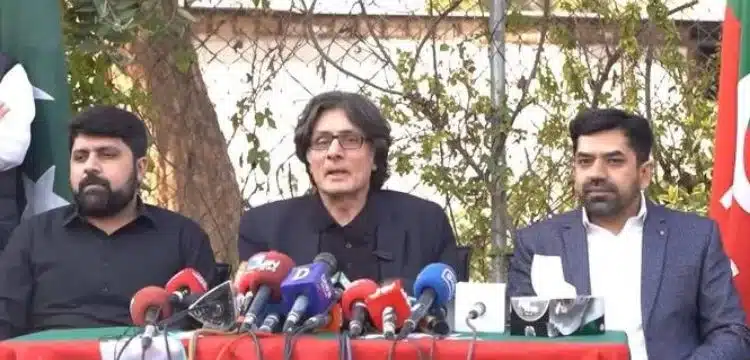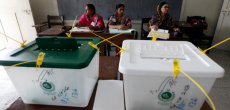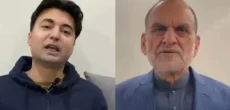[vc_row][vc_column][vc_column_text dp_text_size=”size-4″]Pakistan Tehreek-e-Insaf (PTI) has opted to form an alliance with Majlis Wahdat-e-Muslimeen (MWM) to establish government representation both in the Centre and Punjab, according to PTI spokesperson Rauf Hassan’s announcement during a press conference. The spokesperson further revealed that PTI, in collaboration with Jamaat-e-Islami, aims to assume control in Khyber Pakhtunkhwa.
The decision was substantiated by PTI founder Imran Khan’s assertion that the government should be formed by the victors of the elections, ruling out negotiations with Pakistan Muslim League-Nawaz (PML-N), Pakistan Peoples Party (PPP), and Muttahida Qaumi Movement-Pakistan (MQM-P).
Read more: PTI-Backed Independent Joins PML-N AFter Elections 2024
Imran Khan, the former prime minister who has been in custody since August of the preceding year, directed the party to expedite intra-party elections. The provisional results indicated that independent candidates secured 101 seats in the general elections for the National Assembly, with PML-N trailing with 75 seats. PTI asserted that a significant number of independent candidates are aligned with their party.
In recent developments, some independent candidates have joined PML-N, contributing to the party’s efforts to form government representation in both the Centre and Punjab. The political landscape remains dynamic as parties strategize and make alliances to secure a dominant position.
Earlier on, Imran Khan nominated Ali Amin Gandapur for the role of Chief Minister of Khyber Pakhtunkhwa. This move was confirmed by Khan himself during a formal conversation with journalists. Emphasizing their stance, Khan, 71, declared that PTI would not engage in negotiations with PPP and MQM-P for a coalition government.
In a pivotal election in Dera Ismail Khan – NA-44, PTI stalwart Ali Amin Gandapur emerged victorious by defeating Jamiat Ulema-e-Islam-Fazl (JUI-F) Chief Maulana Fazlur Rehman, securing 92,244 votes.
The unfolding political scenario in Pakistan reflects the intricate maneuvering of political parties as they form alliances, nominate key figures, and strategize to secure influential positions in various regions. Imran Khan’s incarceration adds another layer of complexity to the situation, prompting his party to adapt swiftly to changing circumstances. As PTI and its allies position themselves for governance, the outcome will shape the political landscape and influence the direction of policies in the Centre, Punjab, and Khyber Pakhtunkhwa.[/vc_column_text][/vc_column][/vc_row]











